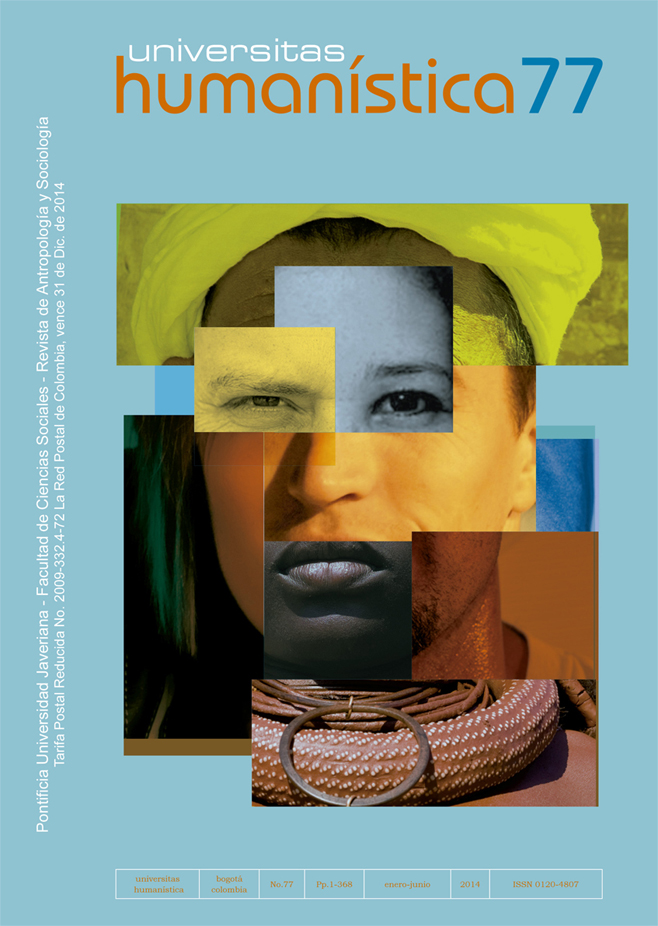Resumen
Bajo una lectura Foucaultiana del nexo poder-saber, este artículo conjuga la teoría de difusión y el análisis del discurso para estudiar las asimetrías de conocimiento presentes en el proceso de difusión de acciones afirmativas de base etno-racial en países andinos seleccionados. El estudio pretende mostrar los entrelazamientos transnacionales entre discursos jurídicos y/o académicos y representaciones etno-raciales, basado en el análisis de reformas constitucionales y legislaciones recientes, la revisión bibliográfica de producción académica nacional y entrevistas a líderes de organizaciones indígenas y afrodescendientes, así como a funcionarios de entidades públicas relacionadas con políticas etnoraciales y antidiscriminatorias. En todos estos niveles (derecho, ciencias sociales, movimientos sociales, políticas públicas) la evidencia obtenida revela cómo el conocimiento experto posiciona a Estados Unidos como paradigma o modelo, invisibilizando la experiencia de otros países y dictaminando una agenda multiculturalista liberal. Esta transferencia (vertical, unilateral) de conocimiento ha tenido un impacto notable en Colombia y Chile, pero ha sido resistida por proyectos epistémicos alternativos, especialmente en Ecuador y Bolivia.

La revista Universitas Humanística se encuentra registrada bajo la licencia Creative Commons Reconocimiento 4.0 Internacional. Por lo tanto, esta obra se puede reproducir, distribuir y comunicar públicamente en formato digital, siempre que se reconozca el nombre de los autores y a la Pontificia Universidad Javeriana. Se permite citar, adaptar, transformar, autoarchivar, republicar y crear a partir del material, para cualquier finalidad (incluso comercial), siempre que se reconozca adecuadamente la autoría, se proporcione un enlace a la obra original y se indique si se han realizado cambios. La Pontificia Universidad Javeriana no retiene los derechos sobre las obras publicadas y los contenidos son responsabilidad exclusiva de los autores, quienes conservan sus derechos morales, intelectuales, de privacidad y publicidad.
El aval sobre la intervención de la obra (revisión, corrección de estilo, traducción, diagramación) y su posterior divulgación se otorga mediante una licencia de uso y no a través de una cesión de derechos, lo que representa que la revista y la Pontificia Universidad Javeriana se eximen de cualquier responsabilidad que se pueda derivar de una mala práctica ética por parte de los autores. En consecuencia de la protección brindada por la licencia de uso, la revista no se encuentra en la obligación de publicar retractaciones o modificar la información ya publicada, a no ser que la errata surja del proceso de gestión editorial. La publicación de contenidos en esta revista no representa regalías para los contribuyentes.


